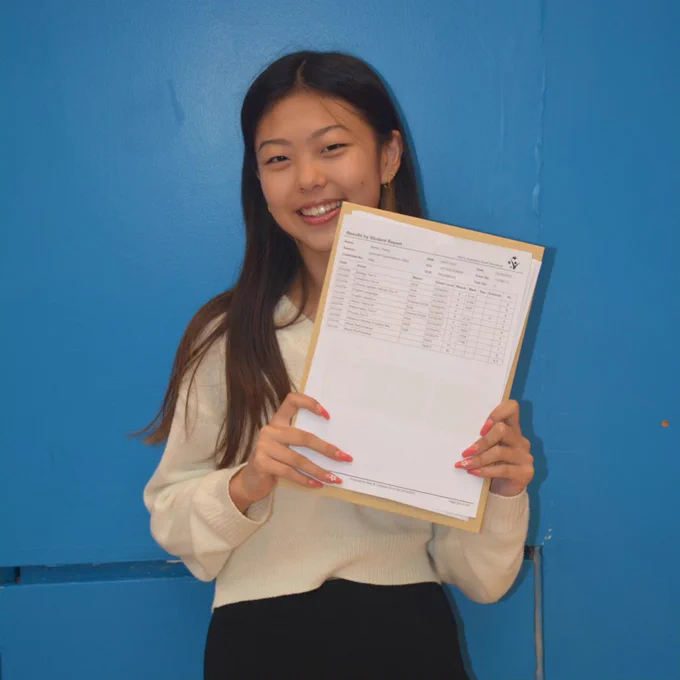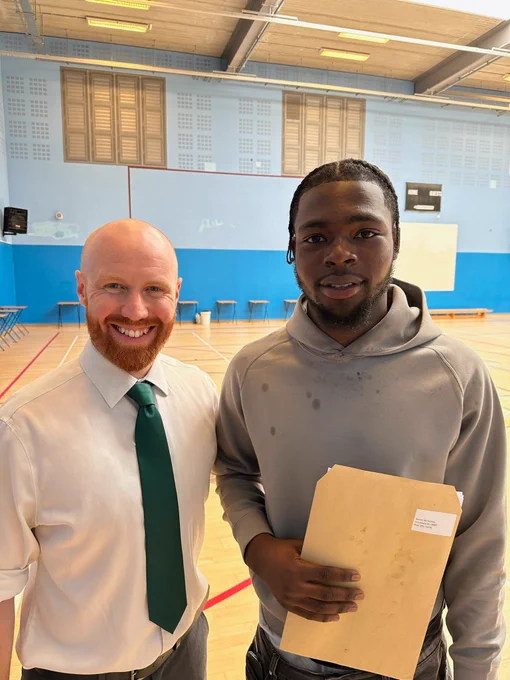Safeguarding
“Safeguarding and promoting the welfare of children is everyone’s responsibility. Everyone who comes into contact with children and their families has a role to play. In order to fulfil this responsibility effectively, we make sure our approach is child-centred. We consider, at all times, what is in the best interests of the child.”
The Academy is committed to the vital contribution all Governors and staff can make to safeguarding children. We will strive to make sure that every student in the Academy feels secure, well cared for, and able to reach their full potential.
We will ensure all our own staff, other professionals, parents/carers and students work together to understand the processes required to keep children safe. They will understand the importance of following procedures and listening to each other, especially when there are concerns about safety.
For more information and support, please access the links at the bottom of the page. Please also access our Safeguarding Newsletter here:
Safeguarding News
| ||
Your Safeguarding Team
If you have any concerns at all about the safety or welfare of a child please do not hesitate to contact us.
| Charlotte Pavlyk DSL |
| Paddy Ward SENCO DDSL |
| Kyna Tonkmor DDSL |
| Celia Squire DDSL |
| Delfina Apicella DDSL |
| Lisa Bird DDSL |
| Sophie Reid DDSL |
| Eulan George DDSL |
| PC Ellie Crawley Safer Schools Police Officer |
The aims of the Academy safeguarding policy are Prevention, Protection and Support in line with Child Protection guidelines. The Academy safeguarding procedures will ensure the following:
- To support the child’s development in ways that will foster security, confidence and independence
- To raise the awareness of both teaching and non-teaching staff of the need to safeguard students and of their responsibilities in identifying and reporting possible cases of abuse
- To ensure that the Academy carries out regular staff training in child protection procedures
- For the named person/s (designated member of staff) to have undertaken Level 3 Safeguarding training and for this training to be updated every two years
- To provide a systematic means of monitoring students known or thought to be at risk of harm
- To emphasise the need for good levels of communication between all members of staff
- To develop a structured procedure within the Academy which will be followed by all members of the Academy community in cases of suspected abuse
- To develop and promote effective working relationships with other agencies, especially the Police, Prevent Duty staff and Social Services
- To ensure that all adults within our Academy have been checked as to their suitability in working with children
- Maintain vigilance and an ‘it could happen here’ attitude, and we build a holistic picture of each child’s needs by paying attention to each factor or piece of information.
Reporting concerns
Parents and carers who would like to share information regarding the safety of a child or concerns they may have can contact the DSL at the appropriate site (see table above). Members of the public can also make a referral to Social Care in the home borough of the child.
If you are concerned about a child’s immediate safety, please call 999.
Croydon residents:
- Croydon Social Care Service: 0208 726 6400
- Main Council Number (Monday to Friday 9am to 5pm): 0208 726 6400
- Urgent Child Protection matters: (Monday to Friday 9am to 5pm) 0208 255 2888
- Out of Hours: 0208 726 6400
Bromley residents:
- Bromley Child Services (Mon-Fri, 8:30am-5pm): 020 8461 7373
- Email the Multi-Agency Safeguarding hub (MASH): mash@bromley.gov.uk
- Out of hours: 0300 303 8671
Lambeth residents:
- Lambeth Social Services: (Mon-Fri, 9am-5pm): 020 7926 5555
In the event of an emergency please call the emergency services on 999
Whisper
This service was created by SWGL (South West Grid for Learning) as part of their online safety services for schools.
The service consists of a website button/link that launches an online dialogue box to capture information or details for anyone who needs to report issues to the school. That information is then sent to an email address nominated by the Academy. Alternatively, a text service is available.
Both services can be regarded as anonymous if the user chooses to withhold their personal information.
Sharing things that upset you is not always an easy thing to do. SWGfL Whisper is designed to act as another way you can tell a responsible adult at the Academy about any issues that you or others might be having. Sometimes that way might be easier than a face-to-face meeting.
This might include:
- You or someone else being bullied
- If you feel somebody at the school is at risk
- If you have a problem that you need to talk about to somebody
Please do not use bad language as we may not receive your message: the school systems may filter and block things like swear words and stop your message from getting to the Whisper account.

Mental Health: The London Children's Practice
The London Children's Practice (LCP) counsellors are highly skilled at working with pupils with a variety of mental health and wellbeing needs, using a variety of evidence-based therapeutic interventions, for example, Psychodynamic Therapy. They can deliver evidence-based work for those who have experienced trauma, anxiety and/or low mood, as well as stress-related disorders. Our counsellors will help your staff to understand the best way to support pupils, assessing their needs and developing a therapeutic support plan. They will uphold safeguarding policies, keep clinical records and report on progress.
How LCP help our students:
- They can also offer groups and workshops on topics such as emotional literacy, mindfulness, and resilience building.
- Provide support early to spot mental health problems before they develop and help children cope with challenges throughout their lives
- Use an effective therapeutic approach which is backed by research and combines several ways of working
- Offer a menu of different services, including advice and support for families and school staff, to build resilience and raise awareness of mental health across the whole school community. These services include:
- One-to-one counselling for pupils who are struggling
- Short appointments to talk about worries, booked by pupils
- Group work about friendship, self-esteem and other issues
To enquire about counselling sessions for your child, please email their Head of Year or a member of the Safeguarding team.
www.londonchildrenspractice.com

Online Safety
Securus
Securus is a new online monitoring tool that the Academy will utilise to pre-empt the detection of new and emerging threats alongside established sources and types of online risk. The primary focus of the software is to protect the welfare and online safety of our students.
The software monitors a vast library of phrases and key terms that have been assigned a severity rating. Inappropriate or harmful content is recognised and results in a screenshot or ‘capture’, detailing the harmful content and registering this with the DSL team. This allows the Safeguarding team to act or intervene when needed.
Think U Know
For guidance on how to safeguard and protect your child from harmful content online, Think U Know is a website created by the police, specifically for parents and carers. The website contains information for 11-13-year-olds, 14+ and parent advice.
11-13 yrs: www.thinkuknow.co.uk/11_13
14+ yrs: www.thinkuknow.co.uk/14_plus
Parents: www.thinkuknow.co.uk/parents
Thinkuknow is unique. It is underpinned by the latest intelligence about child sex offending from CEOP Command (command of the National crime agency that works to pursue and prosecute child sex offenders). Thinkuknow aims to ensure that everyone has access to this practical information through its website and resources.
For more information regarding how to effectively monitor and track apps on your child’s phone, refer to the ‘Parents Guide to E-Safety’ on the website. There is useful information on apps such as Facebook, Instagram, Kik Messenger, Musical.ly, Snapchat, WhatsApp and YouTube.
Sexting
Sexting is the production/ and or sharing of sexual and explicit images of young people who are under the age of 18.
The content is usually sent online on social media platforms or over text message on any device that allows you to share media and messages. These include smartphones, tablets and laptops.
Sexting and the law
It is against the law for anyone under the age of 18 to take, share or possess a ‘nude’ of anyone under the age of 18 – even if it’s a selfie.
The Protection of Children Act 1978 states that it is an immediate offence to obtain, possess or share indecent images of anyone under the age of 18 even if the images were received with the consent of the young person involved. Indecent images don’t necessarily just mean “nudes”. Any image that is deemed sexually explicit counts as an indecent image.
“Indecent” means, for example:
• Naked pictures (nudes);
• Pictures of breasts;
• Pictures of genitals;
• Sex acts including masturbation
• Sexual pictures in underwear or swimsuits/bikinis.
Examples of sexting as a criminal offence:
• A child (under 18) showing or sharing a sexual image with their peer (also under 18);
• A child (under 18) sharing or showing a sexual image created by another child with a peer or an adult;
• A child (under 18) having possession of a sexual image created by a child (under 18).
Childline ‘Report, Remove’
Childline has released support for children of all ages to help remove nude images shared online. To get the image removed, visit the following website:

The child will need to:
- Select their age
- Create a Childline account to receive updates on the report
- Report the image or video to the Internet Watch Foundation (IWF)
The only information you will give to the IWF is the images, videos or URLs you report. There is space to add information such as where the image or video is on a webpage. Childline will never see what pictures & videos or URLs you share with the IWF. The only information the IWF shares with Childline apart from your case number is if they will take down your images or videos, and why.
Harmful Sexual Behaviour (HSB)
“Harmful sexual behaviour refers to sexual activity that does not involve mutual
consent by the individuals involved and/or where the relationship includes an
imbalance of power, and where the behaviour has the potential to cause physical
and/or emotional harm.”
It has been recognised, increasingly that harmful sexual behaviour between children happens in school. The above can be driven by wider societal factors beyond the school, such as everyday sexist stereotypes and everyday sexist language. Our Academy does not tolerate behaviour or dismiss behaviours that normalise sexual harassment or abuse. Our staff receive regular harmful sexual behaviour training to ensure incidents can be dealt with appropriately and in a timely manner.
Sexualised behaviour sits on a continuum with five stages:
- appropriate – the type of sexual behaviour that is considered 'appropriate' for a particular child depends on their age and level of development
- inappropriate – this may be displayed in isolated incidents but is generally consensual and acceptable within a peer group
- problematic – this may be socially unexpected, developmentally unusual, and impulsive, but have no element of victimisation
- abusive – this often involves manipulation, coercion, or lack of consent
- violent – this is very intrusive and may have an element of sadism
The academy uses the following flowchart of actions in incidents of HSB:

Domestic Violence
The Academy is part of the ‘Operation Encompass’ run by the Met Police, in conjunction with Croydon safeguarding. Since the impact of Covid-19, there has been an increase in the number of children experiencing domestic abuse. Noticing, listening to and supporting these children is part of our professional duty.
The government have updated the law for children’s involvement in Domestic Violence, now recognising them as victims of domestic abuse in their own right, as part of the ‘Domestic Abuse Act’.
Recognise domestic abuse
Does your partner, ex-partner or someone you live with:
- cut you off from family and friends and intentionally isolate you?
- bully, threaten, or control you?
- take control of your finances?
- monitor or limit your use of technology?
- physically and/or sexually abuse you?
Domestic abuse is not always physical violence. It can also include:
- coercive control and ‘gaslighting’
- economic abuse
- online abuse
- threats and intimidation
- emotional abuse
- sexual abuse
Anyone can be a victim of domestic abuse, regardless of gender, age, ethnicity, religion, socio-economic status, sexuality or background.
Free, confidential support and advice are available to victims and their concerned family members or friends, 24 hours a day.
- Refuge’s National Domestic Abuse Helpline
- Phone: 0808 2000 247
- Online: https://www.nationaldahelpline.org.uk/Chat-to-us-online
- Men’s Advice Line (a confidential helpline specifically for male victims)
- Phone: 0808 801 0327
- Email: info@mensadviceline.org.uk
- Bright Sky app*
- This is a mobile app for anyone experiencing domestic abuse or who is worried about someone else
- The app can be downloaded for free from the app stores.
- *Only download the app if it is safe to do so and you are sure that your phone isn’t being monitored.
- Victim support
- Phone: 0808 168 9111 (24/7)
- Online: https://www.victimsupport.org.uk/help-and-support/get-help/support-near-you/live-chat/
Other useful resources below:
























